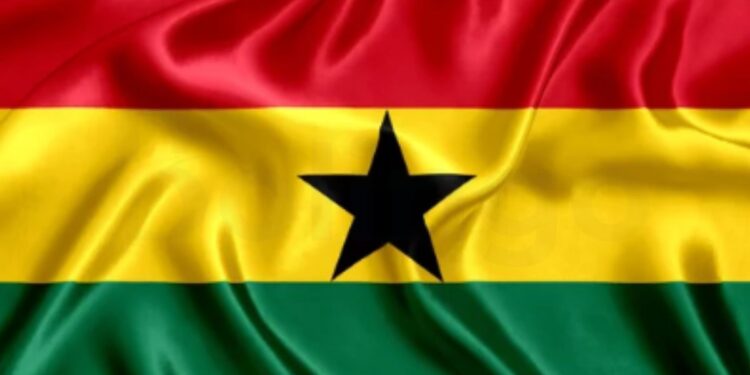Ghana’s political landscape is a mosaic of historical narratives, spanning from the fervent struggle for independence to the ongoing pursuit of equitable representation. Despite being hailed as an oasis of peace and a role model for democratic governance in Africa, Ghana encounters a formidable barrier to true inclusivity: the language gap.
While political discourse thrives in Ghanaian languages on various platforms, translation of political texts such as party manifestos, press releases, and campaign speeches predominantly remains in English.
By addressing the language barrier and embracing Ghana’s linguistic diversity, we can pave the way for a more inclusive political landscape where all citizens have equal access to information and participation in governance processes.
Ghana’s Linguistic Diversity: The Call for Translation of Political Texts.
Ghana is a linguistically diverse nation, with over 50 Ghanaian Languages spoken across the country. Gur languages dominate the north, accounting for approximately 32% of the population, while Kwa languages prevail in the south, comprising about 67% (Lewis et. al. 2013).
Ghanaians exhibit proficiency in their native languages, underscoring the importance of translation of political texts in the language that resonates with them. The 2021 Population and Housing Census reveals that the Greater Accra region accounts for 17.7%, which is about 5.4 million of Ghana’s total population. Within the region, 87% of individuals possess the ability to read and write at least one Ghanaian language, with 15.3% (733,931 people) proficient in Akuapem Twi, 43.7% (2,096,261 people) in Asante Twi, 9.4% (450,912) in Fante, 29.3% (1,405,502) in Ga, 6.4% (307,004) in Dangme, and 16% (767,510) in Ewe.
Similarly, the Ashanti Region, with about 5.4 million people in the country’s population, boasts a literacy rate of 78%. Within this region, 95.8% (4,054,849) of the literate population are fluent in both reading and writing Asante Twi, 1.9% (80,419) in Akuapem Twi, 1.3% (55,024) in Ewe, and 1% (42,326) in Ga.
Given the linguistic diversity and the high proficiency in Ghanaian languages among the population, there is a significant need for the translation of political texts into various local languages. This will ensure effective communication and engagement across different linguistic communities in Ghana.
The Importance of Translation of Political Texts
Translation of political texts into Ghanaian languages is not merely a logistical necessity; it is a cornerstone of inclusive governance. Translation acts as a catalyst for enhancing political participation, empowering citizens to engage meaningfully in the democratic process. Ghana has incorporated nine Ghanaian languages into educational institutions, including Akan( Akuapem Twi, Asante Twi, Fante) , Dagaare, Dagbani, Dangme, Ewe, Ga, Gonja, Kasem, and Nzema.
However, political materials such as party manifestos, press releases, campaign speeches and many more largely remain inaccessible to non-English readers and speakers, hindering their participation in democratic processes.
By making political information accessible in Ghanaian languages, translation promotes transparency, accountability, and civic engagement. Furthermore, it aligns with the principles of linguistic democracy, ensuring equal recognition and value for all languages within Ghanaian society.
Translation of Political texts serves as a vital tool for promoting inclusive governance in Ghana. By translating core political documents into Ghanaian languages, barriers to participation are dismantled, enabling a more diverse range of citizens to engage meaningfully in political discourse and decision-making processes. Moreover, translation of political texts fosters transparency and accountability, as it ensures that all citizens have access to crucial information regardless of their linguistic background.
Consequences of Neglecting Translation of Political Texts

Neglecting translation of political texts such as party manifestos, press releases etc. has far-reaching repercussions across Ghana’s political landscape.
According to Gyasi, a manifesto provides a thorough summary of a party’s political stance on a broad range of issues. However, the language barrier exacerbates political apathy and disenfranchisement among marginalized communities, impeding their ability to make informed decisions. This exclusion undermines the legitimacy of democratic institutions, potentially leading to social unrest and political instability.
Addressing this gap through translation is not just a matter of practical necessity; it is a moral imperative for nurturing a more informed and politically engaged citizenry.
Benefits of Translation of Political Texts
The challenges inherent in translating political language are multifaceted and not easily discernible. These difficulties often involve intricacies that require careful consideration and expertise. However, translation of political texts serves as a bridge, facilitating the widespread dissemination of political information to diverse audiences while bridging linguistic and cultural divides.
Beyond mere communication, translation of political texts play a crucial role in fostering linguistic empowerment and preserving cultural heritage. It underscores the importance of indigenous languages in shaping national dialogue. Moreover, political translation is instrumental in promoting civic education and fostering greater awareness, empowering citizens to actively participate in democratic processes.
Professional translation services, such as those provided by Bolingo Consult, are essential in ensuring linguistic accuracy and culturally sensitive messaging in political documents. By leveraging their expertise, political entities can effectively bridge linguistic gaps and engage with a broader audience base.
Leveraging Professional Translation Services for the Translation of Political Texts
Recognizing the critical role of translation services is essential for bridging the linguistic gap effectively. These services guarantee accuracy and cultural sensitivity in conveying political messages to diverse audiences, fostering inclusivity and citizen engagement. Moreover, they address challenges associated with translating complex political concepts and terminology, ensuring the intended meaning is conveyed accurately and effectively.
The importance of translation of political texts as a catalyst for inclusive governance in Ghana cannot be overstated. By embracing linguistic diversity and ensuring the accessibility of political materials in Ghanaian languages, the nation can significantly enhance citizen engagement, promote transparency, and strengthen its democratic institutions.
As we move forward, it is imperative for policymakers to prioritize language inclusivity on their agendas and allocate resources towards professional translation services. Establishing dedicated Ghanaian language platforms within media outlets and educational institutions will further facilitate political discourse and engagement among the populace.
Emphasizing the significance of translation of political texts represents a foundational step towards constructing a more inclusive and equitable society in Ghana. It is through these concerted efforts that Ghana can continue to lead by example, setting a precedent for inclusive governance across the African continent and beyond.










